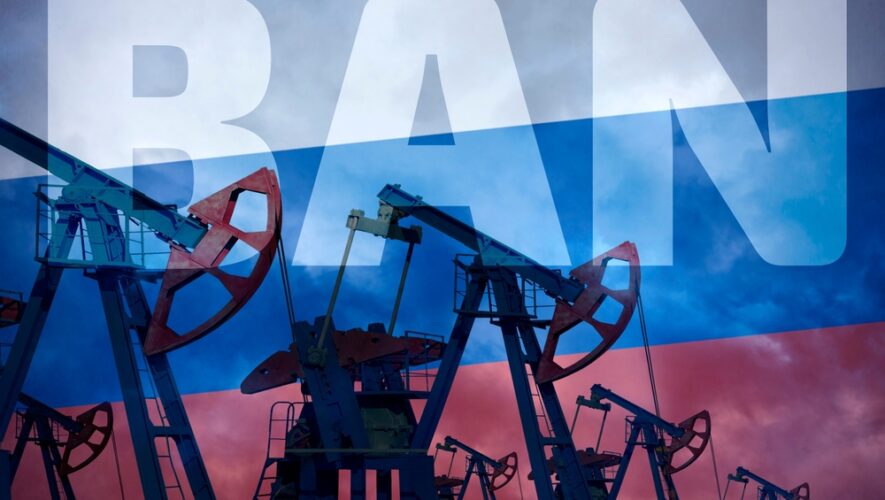By Julius Melnitzer | June 27, 2022
Utica Resources Inc. filed a lawsuit this week seeking to invalidate the Quebec government’s ban on hydrocarbon exploration and exploitation, or obtain billions of dollars in compensation for what it claims is an expropriation, giving new life to critics’ claims that the legislation will hamper economic development and prove counterproductive to the intended goal of reducing greenhouse gas emissions (GHGs).
In April, the Quebec legislature passed Bill 21 (not to be confused with the legislation aimed at strengthening the French language, which bears the same legislative designation). The law, which has received Royal Assent and will come into force as soon as regulations are promulgated, makes Quebec the first North American jurisdiction to ban hydrocarbon exploration and production.
The legislation both bans future exploration and revokes existing licenses. Licence holders must permanently close their wells and restore their sites, but the government will only reimburse 75 per cent of the expenses incurred. Currently, 182 permits are extant, and 62 wells are subject to rehabilitation.
Quebec has offered $100 million as compensation. But the offer does not account for potential revenue losses and falls far short of the $500 million the companies say they have spent exploring for oil and gas over the past 15 years. Nor does it take into account the value of the holdings themselves, which could be worth hundreds of millions of dollars, perhaps billions.
“If this law is upheld, it is a direct threat to individual property rights, a massive expropriation and a wrong signal to investors around the world,” said Mario Lévesque, chief executive of Utica Resources, which controls 20 per cent of all oil and gas claims in Quebec. “I did not believe that Canada would be a place where this could happen.”
But Pascal Bergeron, a spokesperson for Environnement Vert Plus, an environmental group that championed Bill 21, said that calling the legislation an “expropriation” is a mischaracterization.
“The government granted the licences without public consultation or approval, so what has been offered to the resource companies is in line with what they deserve,” he said.
Nevertheless, the legislation essentially ensures that the 20 per cent of Canada’s natural gas reserves that sit in Quebec will remain stranded at a time when the global demand for gas has never been higher.
Europe is particularly in need, given it intends to drastically reduce its dependence on Russian natural gas in the wake of the invasion of Ukraine by seeking other sources of supply.
Quebec’s vast reserves would, according to submissions made to the provincial legislature by Utica Resources, potentially allow Quebec to replace 19 per cent of the European Union’s natural gas imports from Russia.
Global demand for natural gas is projected to increase 30 per cent by 2050. Satisfying this global demand would yield huge economic benefits to the province, according to Gabriel Giguère and Miguel Ouellette of the Montreal Economic Institute.
They said that developing the natural gas in the Utica Shale, located between Montreal and Quebec City, would create the equivalent of 230,000 quality jobs for one year and increase gross domestic product by up to $93 billion.
But Bill 21’s proponents said that’s gibberish. They said the infrastructure required to export natural gas from Quebec is very limited, and that it would take years and billions of dollars to get it in place.
“The industry has been talking about the potential benefits of exporting natural gas for more than 10 years, but have never invested in it because even they understand that it is not economically viable without massive government subsidies,” said Alice-Anne Simard, general director of Nature Québec, an environmental group that supports Bill 21. “Nor have they figured out a way to exploit the resources in a sustainable way.”
Giguère and Ouellette said that failure to develop natural gas will impair GHG reduction efforts as well. They said natural gas should be an “integral part” of the energy basket in those countries where coal still plays a major role, because its pollutant effects are half that of coal.
“The transition from coal to natural gas in the world, from 2010 to 2018, saved 500 million tonnes of CO2 from being emitted, the equivalent of the GHG emissions of the province of Quebec for nearly six years at 2019 GHG emission levels,” they said.
Simard counters that natural gas is not a transitional fuel.
“Renewable energy is getting cheaper, and before investing in the energy of the past, we should be investing in the energy of the future,” she said.
Julius Melnitzer is a Toronto-based legal affairs writer, ghostwriter, writing coach and media trainer. Readers can reach him at [email protected] or https://legalwriter.net/contact.
RELATED ARTICLES
Alberta energy sector still in limbo as appeals court weighs Impact Assessment Act
Ottawa’s last-minute interventions in energy projects eroding Canadian regulators’ independence
Shell-shocked: Could a Dutch court’s ruling on Shell’s emissions encourage similar cases in Canada?
